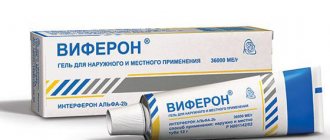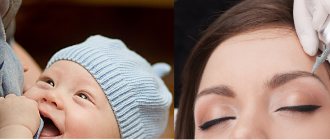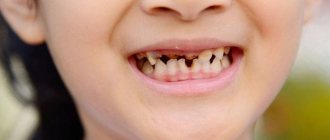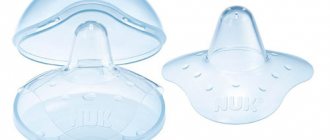During breastfeeding, a woman's body loses many vitamins and minerals. Poor nutrition can lead to calcium deficiency, which negatively affects the condition of the oral cavity.
There is no point in refusing treatment and enduring toothache due to lactation. Treatment of oral diseases is necessary, especially in the presence of infection, gumboil, and severe pain. Modern dentistry offers safe removal, filling, and cleaning of teeth. The doctor chooses painkillers, anti-inflammatory drugs, and anesthetic drugs for the nursing mother that will not harm the baby.
Anesthesia, is there any harm?
Most measures for the treatment of dental diseases are carried out with the introduction of an anesthetic drug, which allows not only to cope with pain, but also to eliminate the discomfort associated with its anticipation.
The fact is that often when a dentist performs any procedures in a woman’s oral cavity, she releases a large amount of the hormone adrenaline. Under its influence, vasospasm occurs, resulting in a decrease in the amount of breast milk produced.
In addition, part of the hormone passes into mother's milk. As a result of subsequent feeding, the baby's nervousness and emotional instability increase.
For these reasons, breastfeeding women should not refuse anesthesia. Moreover, the drugs used to relieve pain in the oral cavity have a local effect, reducing sensitivity only in those areas of the gum and hard tissue that will be subject to surgical intervention.
In most cases, the period of influence of anesthetics on the female body does not exceed 4-5 hours. In this case, feeding is allowed 2-3 hours after the administration of the drug, since by this moment half of it will be excreted from the body.
If a woman has concerns that anesthesia may in any way affect the baby, doctors recommend adhering to the following recommendations:
- express some milk in advance, which can be fed to the child after returning from dentistry;
- After the procedure, express and pour out the released milk.
Thanks to such actions, breastfeeding will not have to be suspended, and the woman will be able to get rid of existing dental diseases and be calm about the child.
Types of anesthesia may differ depending on the method of administration. There are several options for this procedure:
- Conduction anesthesia. The drug is administered into the gum tissue.
In this case, the sensitivity of several teeth is blocked due to the effect of an anesthetic substance on the nerve branch. Decreased sensitivity and numbness can be observed not only in the gum tissue, but also in the teeth of the lower jaw, in the lip and tongue. The duration of this anesthesia is one hour. - Infiltration anesthesia is carried out by introducing the drug into the projection of the apex of the tooth root or into the gum tissue at the end of the root.
Elimination of pain occurs by blocking pain impulses from the nervous system. The duration of exposure to the drug does not exceed an hour.At the end of this time, the anesthetic is broken down and eliminated. This type of anesthesia is used during the removal of damaged nerves, filling open canals, and performing pulp surgery.
- Intraligamentous anesthesia. The drug is injected into the periodontal dental ligament under high pressure.
This method allows you to use a minimal amount of the drug, but guarantees a long-lasting and quick effect. Most often, this anesthesia is used during tooth extraction procedures, treatment of deep caries or pulpitis. - Intraosseous anesthesia. The procedure involves injecting a painkiller into the bone tissue. The method is used in case of tooth extraction due to its speed of action, high efficiency and effect on certain tissues.
When deciding whether to undergo dental treatment using an analgesic drug, a nursing mother should understand that the degree of effect of the anesthetic depends on several factors:
- the age and health status of the child;
- the period of time elapsed from the moment of injection to feeding;
- duration of painkiller use;
- method of injection;
- period of exposure and elimination of the drug.
To exclude possible negative consequences for the child, the woman needs to discuss these points with her doctor and choose the optimal plan for further therapy.
Pain medications
When visiting a dentist, a woman needs to clarify that she is breastfeeding. With this information, the doctor will select an anesthetic drug that has minimal impact on both the lactation process and the child’s body.
The most common anesthetics in dental practice include substances such as Novocaine, Lidocaine and Ultracaine.
Is it possible to treat pulpitis at home and what are the consequences? We will discuss here methods and means for caries prevention.
At this address https://dentist-pro.ru/lechenie/zuby/kak-oformlyat-nalogovyj-vychet.html we will tell you how to apply for a tax deduction for dental treatment.
Novocaine
The anesthetic drug has minimal toxic effects. In addition to eliminating sensitivity, it dilates blood vessels and helps provide an antibacterial effect.
The anesthetic begins to act 10-15 minutes after administration and maintains its effect for half an hour.
Recently, this drug has not been used very often in dentistry. This is explained by the fact that the substances included in its composition can cause an allergic reaction.
Therefore, nursing women should avoid using Novocaine during dental treatment, since it is impossible to determine exactly how it will affect the child’s condition.
Lidocaine
In dental practice, Lidocaine is used much more often than other anesthetics. This is due to its deep and lasting effect on the human body.
Most often this drug is used for prosthetics, removal of cysts, suturing and treatment of caries and pulpitis.
Lidocaine has a greater toxic effect than Novocaine. During lactation, anesthesia using this drug is not recommended.
If it is impossible to avoid its use, it is advisable to stop breastfeeding for a while. It will be allowed to restore it after consultation with the attending physician.
Ultracaine
The drug has minimal toxicity compared to most analogues, but the effect of its use is pronounced. Elimination of gum tissue sensitivity is observed 1-2 minutes after the injection.
The anesthetic is used during filling and extraction of teeth, installation of artificial crowns, and removal of nerves. The effect of the anesthetic substance lasts for an hour.
Due to the fact that the concentration of Ultracaine in the blood quickly decreases and the drug is eliminated from the body within half an hour, its presence in breast milk in large quantities has not been detected.
Therefore, doctors agree that with a single use of the drug, there is no reason to stop breastfeeding.
X-ray
Most therapeutic procedures are impossible without taking an X-ray of the jaw. This event allows us to identify many factors, such as the degree of progression of caries, the location of cysts and granulomas, and the localization of roots.
If there is a need to conduct an X-ray examination during lactation, a woman should not worry.
This procedure does not affect the quality of breast milk; only a decrease in its quantity may be observed for a short period.
The radiation that accompanies the manipulation applies exclusively to the face, since the rest of the body, including the chest, is protected by a special apron.
If fears about possible consequences for the child persist, and the procedure cannot be postponed, digital radiography can be performed. This procedure is more expensive, however, there is practically no radiation exposure.
Diagnostic methods for dental treatment
The first and main diagnostic method in dental treatment is a visual examination of the oral cavity using instruments. Damaged enamel changes color and appearance. In most cases this is enough.
In difficult cases, when the problem does not lie on the surface of the tooth, or there is swelling of the gums, the doctor will need an x-ray. You shouldn't be afraid of her. Modern X-ray machines use high-frequency technology. They are called visiographs. The radiation they emit is 20 times less than that received when flying on an airplane. If you follow safety precautions, i.e. cover the woman with a zinc apron, then there will be no harm from the study.
Modern visiographs are safe for nursing mothers, since the radiation dose is minimal
Permitted and prohibited procedures
Since many dental procedures are not recommended during pregnancy to avoid harm to the fetus, most women require certain therapeutic interventions after the birth of their baby.
The list of permitted manipulations during lactation includes the following procedures:
- Tartar removal. Mineralized deposits occur as a result of insufficiently thorough cleaning of the oral cavity and the inability to remove the entire volume of bacterial plaque, especially from the distant molars, gum line and interdental space.
Tartar that accumulates on the teeth over time leads to bad breath, inflammation and bleeding of the gums, and in some cases, loosening and loss of teeth.The stone removal procedure is absolutely painless. Most often, it is carried out using ultrasound, which does not in any way affect the composition and quantity of breast milk.
- Coating of teeth with fluoride-containing preparations. The procedure helps saturate the enamel with essential minerals and trace elements, prevents the occurrence of caries and the development of pathogenic microorganisms on the tooth surface.
Fluoridation of teeth is very useful for women who have recently given birth, as it allows you to restore the mineral composition of the elements of the dentition, depleted during pregnancy. - Cyst removal. Ignoring this benign neoplasm over time can lead to the development of suppuration, the emergence and spread of the inflammatory process to surrounding tissues.
For this reason, the pathology requires immediate elimination. Informing the dentist about lactation eliminates the risk of exposure to milk and the baby by selecting the optimal pain reliever. - Filling carious cavities. This procedure does not pose any risk to the child, but failure to perform it can lead to the development of serious complications in the mother - pulpitis, periodontitis, granuloma.
Not all therapeutic procedures are allowed during lactation. Prohibitions include activities such as dental implantation and prosthetics.
This is explained by the complexity and breadth of these manipulations. In addition to grinding your own teeth, it may be necessary to implant a titanium rod into the jawbone, which is carried out under anesthesia.
In addition to this, special therapy is often prescribed with antibiotics, which easily pass into breast milk. Therefore, during lactation you should avoid using prosthetics.
What are the dangers of dental problems for a nursing mother?
Caries and inflamed gums in the mother's mouth are a dangerous source of infection for the child. When you try your baby's food, kiss and hug him, bacteria enter the baby's mouth and can cause the development of stomatitis.
Stomatitis in a baby
A constantly aching tooth often becomes the cause of psycho-emotional stress and bad mood, as well as lack of sleep. The result of chronic toothache is likely to be a decrease in the amount of milk, up to complete disappearance.
Due to constant toothache, milk may disappear
Removal
A tooth affected by disease cannot always be cured. In some cases, its removal is required. Lactation is not an obstacle to this event, however, you must first discuss several points with your doctor:
- what anesthetic will be used during removal;
- is antibacterial therapy necessary?
- Is it possible to do without using antibiotics?
If a specialist chooses drugs that are not able to pass into breast milk, you should not refuse the tooth extraction procedure.
Often, dentists choose alternative ways to eliminate inflammation that will not harm either mother or child.
See photos of the stages of dental caries and learn about methods of its treatment. In this publication you will find details about the structure of a human molar.
Follow the link https://dentist-pro.ru/lechenie/zuby/pochemu-voznikaet-dentofobiya-i-kak-preodolet.html if you are interested in what dentophobia is and what methods exist to eliminate it.
Prevention of oral diseases
To prevent diseases, it is necessary to maintain dental health even while planning pregnancy. You need to be examined by a dentist every six months, and if necessary, every trimester. To prevent the development of an infectious process, it is recommended:
- brush your teeth daily, use dental floss, mouthwash;
- use toothpastes and gels to strengthen gums and tooth enamel;
- regularly clean your teeth from plaque and stones;
- eat nutritiously, limit the consumption of fast carbohydrates, consume dairy products and meat daily;
- take multivitamins with calcium.
Whitening
Teeth lightening is a procedure in the field of aesthetic dentistry, which is aimed at restoring their appearance. During lactation, doctors recommend refraining from performing this manipulation.
This is explained by the fact that the chemicals used in bleaching can seep deep into the body of the tooth.
At the same time, the strength of enamel decreases during pregnancy, and professional whitening has a strong effect on it, causing increased sensitivity.
The pain that occurs after a teeth whitening session is often very severe, which requires the use of painkillers.
During breastfeeding, this is a very undesirable moment, so bleaching should be postponed until the mother stops breastfeeding.
The video provides additional information about dental treatment during lactation.
Permitted painkillers for toothache: list of anesthetics
Toothache occurs suddenly and makes chewing and swallowing difficult. If the discomfort is not relieved, the pain radiates to the ear and cheek. There is a small list of drugs allowed during lactation. Before taking them, you should consult your dentist.
The best pain relievers for breastfeeding mothers:
- Paracetamol. It is a good replacement for Analgin and is allowed during pregnancy. You can take it three times a day, but not more than 1500 mg per day.
- Ibuprofen or Nurofen. Not only eliminates pain, but also reduces temperature. Take no more than 400 mg in 6 hours, the permissible dose per day is 1200 mg. [1]
- No-shpa. An antispasmodic that reduces headaches, toothaches, and intestinal discomfort. You should not take more than 6 tablets (40 mg) per day.
- Dentol Baby, Kalgel. Local preparations that are used to reduce pain during teething. Apply a thin layer to the inflamed gums up to 6 times a day.
Reviews
Dentists keep repeating that dental treatment for women who are breastfeeding is an acceptable and necessary procedure.
The main point in this event is the warning from the attending physician about lactation. This will allow the specialist to select a set of medications that will not only benefit the mother, but also will not harm the child.
You can tell about your experience in treating dental diseases while breastfeeding in the comments to the article.
If you find an error, please select a piece of text and press Ctrl+Enter.











